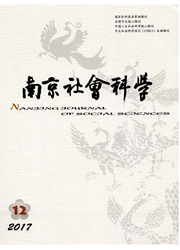

 中文摘要:
中文摘要:
我国城市社区居委会具有"双重身份",既是法定群众性自治组织,代表社区居民行使自治权利,实现自我管理;又是国家在社会网络中行政管理的代理人,协助执行政府交办的事务,具有"自治性"和"行政性"二元属性。在"行政一元化"基层治理结构中,居委会事实上"行政性"高于"自治性",被高度"行政化"。自20世纪90年代起,依循"找回社会"、重建国家-社会关系及发展市民社会的理念,基层行政管理体制和社会治理开始转型,力图扭转基层"行政一元化"格局,让社区居委会回归"自治功能"。就此,"去行政化"成为基层改革的基本策略。围绕"去行政化"主线,政府主导进行了几轮改革,然而,居委会"行政化"问题不仅没有解决,反而呈现愈演愈烈态势,以致中央发文明令要求为其"减负"。本文基于调研案例,刻画了居委会"行政化"现实,通过对权威国家管理体制运行逻辑和基层"代理人"行为选择逻辑的两方面分析,说明单纯指向"去行政化"的改革为何难以奏效,指出基层治理模式转型,保证社区居委会的自治权利,需要在国家建设进程中政府行政管理体制的综合改革和整体推动。
 英文摘要:
英文摘要:
In China,the Urban Community Residents' Committee( UCRC) has two identities and roles. The first is a self-governance organization who organizes and represents residents to express their demands,interests in a urban community according to the Organization Law of Residents' Committee; On the other hand,it also acts as an agent of subordinate body of government in local grass-root network who accomplishes kinds of management tasks which government assigns. Because of strong administrative power from top down,UCRC is highly dominated by government. Although a series of debureaucratic measurements which were carried out based on theories of civil society,state-society relation to make effort to change the situation of "unified control",and rebuilt governance structure at urban grass-root seem unsuccessful,the bureaucratization of UCRC becomes more and more serious. The paper explains why these reforms cannot get effect by analyzing logics of current administrative regime,and illustrates that highly bureaucratization of UCRC is the result of the regime operation.
 同期刊论文项目
同期刊论文项目
 同项目期刊论文
同项目期刊论文
 期刊信息
期刊信息
